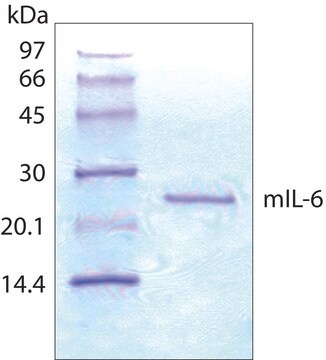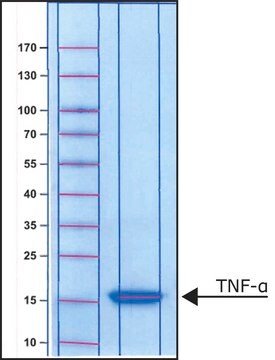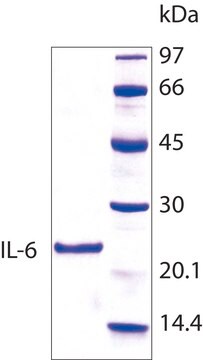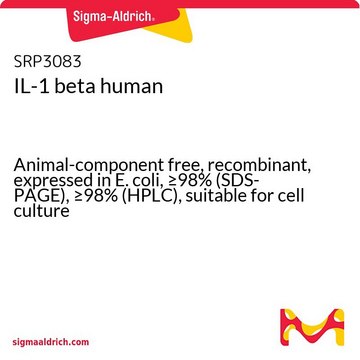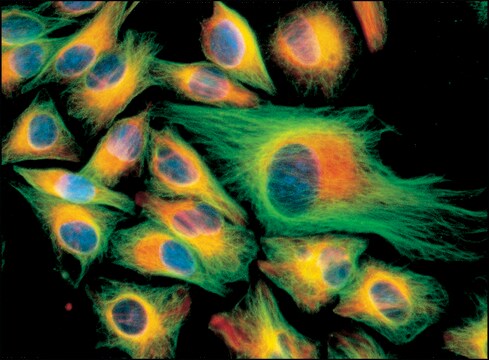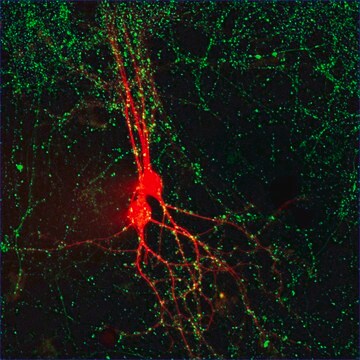I5271
IL-1β mouse
≥97% (SDS-PAGE), recombinant, expressed in E. coli, lyophilized powder, suitable for cell culture
Synonym(s):
IL-1β, Lymphocyte activating factor
About This Item
Recommended Products
product name
Interleukin-1β from mouse, IL-1β, recombinant, expressed in E. coli, lyophilized powder, suitable for cell culture
biological source
mouse
Quality Level
recombinant
expressed in E. coli
Assay
≥97% (SDS-PAGE)
form
lyophilized powder
potency
≤0.010 ng/mL ED50
quality
endotoxin tested
mol wt
17.5 kDa (containing 153 amino acid residues)
packaging
pkg of 5X5 μg
pkg of 5 μg
technique(s)
cell culture | mammalian: suitable
impurities
≤0.1ng/mg
UniProt accession no.
storage temp.
−20°C
Gene Information
mouse ... Il1b(16176)
General description
Application
- as a proinflammatory agent, to induce inflammatory signaling cascades mediated cellular damage
- to study its effect on fetuin A-induced inflammatory response in podocyte
- to check its effect on the expression of mitogen-activated protein kinase 4 using 3T3-L1 adipocytes
Biochem/physiol Actions
Physical form
Analysis Note
Other Notes
Storage Class Code
11 - Combustible Solids
WGK
WGK 3
Flash Point(F)
Not applicable
Flash Point(C)
Not applicable
Certificates of Analysis (COA)
Search for Certificates of Analysis (COA) by entering the products Lot/Batch Number. Lot and Batch Numbers can be found on a product’s label following the words ‘Lot’ or ‘Batch’.
Already Own This Product?
Find documentation for the products that you have recently purchased in the Document Library.
Customers Also Viewed
Articles
The Interleukins comprise a disparate group of cytokines and growth factors that are produced by and released from leukocytes. Interleukin-1β (1L-1β) is released primarily from stimulated macrophages and monocytes and plays a key role in inflammatory and immune responses and may induce anti-tumor immunity.
Our team of scientists has experience in all areas of research including Life Science, Material Science, Chemical Synthesis, Chromatography, Analytical and many others.
Contact Technical Service


